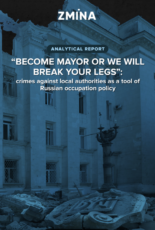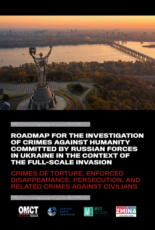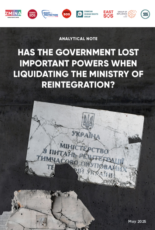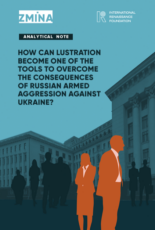Imposing citizenship of the Russian Federation on the citizens of Ukraine in the occupied territory of Ukraine and in the Russian Federation
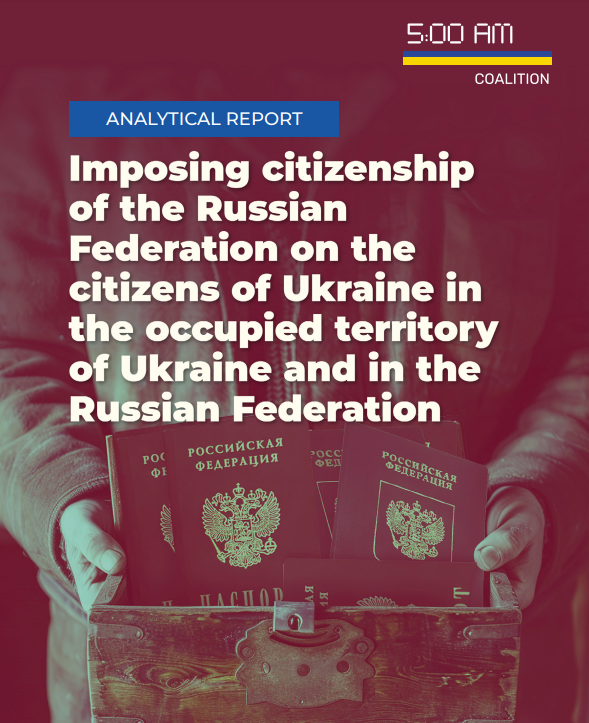
After the beginning of the invasion of the territory of Ukraine in 2014, the Russian Federation began to use the tools of imposing Russian citizenship on the population of the occupied territories. The first victims of this policy were the residents of occupied Crimea. The Russian Federation began to automatically consider everyone who lived on the territory of the peninsula at the time of its occupation as citizens of Russia, if within a month they did not apply for the renunciation of Russian citizenship.
The next step was the imposition of Russian citizenship in certain areas of Donetsk and Luhansk regions, which, unlike Crimea, took place in the form of simplifying the acquisition of citizenship with simultaneous restriction of the rights of persons who did not receive Russian citizenship. With the beginning of the full-scale invasion of the occupied territories of Donetsk, Luhansk, Kherson and Zaporizhzhia regions, Russia continued to implement this scenario-obtaining Russian citizenship is possible in a simplified manner, and involves submitting an application to renounce Ukrainian citizenship. But at the same time, more actively than before, the occupying authorities of the Russian Federation apply the practice of creating such conditions under which it is impossible for Ukrainians to live in the occupied territory if they do not have a passport of a citizen of the Russian Federation.
The aim of the research is to trace the key stages and practices of implementing the policy of imposing Russian citizenship on Ukrainian citizens – residents of the temporarily occupied territories of Ukraine, as well as citizens of Ukraine who, as a result of armed aggression, were forced to move to the Russian Federation, and to provide legal qualification of such actions both within the framework of international law and within the framework of Ukrainian legislation.
The analytical report was prepared within the framework of the project “United on the path to justice: documenting serious international crimes during the Russian armed aggression in Ukraine”, which is implemented by the Regional Center for Human Rights with the financial support of the Ministry of Foreign Affairs of the Kingdom of the Netherlands.

